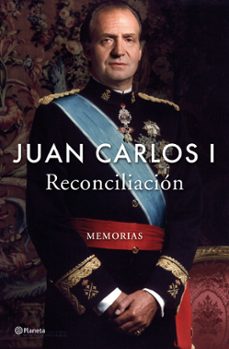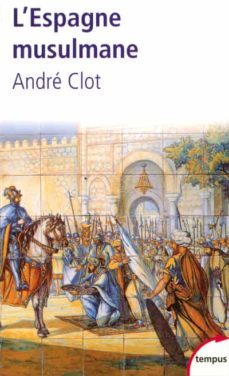Imprescindibles
Más vendidos Libros más leídos eBooks más leídos Todos los libros Todos los libros Autores destacados Series y sagas
Recomendados Libros recomendados Autores destacados Libros que inspiran Vidas con historia LGTBIQ+ English books
Ficción
Literatura Contemporánea Estudios literarios Clásicos Cuentos Poesía Teatro Libros de bolsillo Sagas literarias
Géneros literarios Novela romántica y erótica Novela negra Novela histórica Narrativa fantástica Novela de ciencia ficción Novela de terror Narrativa de humor Narrativa de viajes
No Ficción
Ciencias y tecnología Biología Ciencias Ciencias naturales Divulgación científica Informática Ingeniería Matemáticas Medicina Salud y dietas Formación Idiomas Estilo de vida Libros de Cocina Guías de viaje Narrativa de viajes Deportes Libros de Juegos Manualidades
Humanidades Autoayuda y espiritualidad Ciencias humanas Derecho Economía y Empresa Psicología y Pedagogía Filosofía Sociología Filología Biblioteconomía Estudios filológicos Estudios lingüísticos Estudios literarios Historia y crítica de la Literatura
Infantil
Juvenil
#Jóvenes lectores Narrativa juvenil Clásicos adaptados Libros Wattpad Libros Booktok Libros de influencers Libros de Youtubers Libros Spicy Juveniles Libros LGTBIQ+ Temas sociales Libros ciencia ficción Libros de acción y aventura Cómic y Manga Juvenil Cómic Juvenil Manga Shonen Manga Shojo Autores destacados Jennifer L. Armentrout Eloy Moreno Nerea Llanes Hannah Nicole Maehrer
Libros de fantasía Cozy Fantasy Dark academia Hadas y Fae Romantasy Royal Fantasy Urban Fantasy Vampiros y hombres lobo Otros Misterio y terror Cozy mistery Policiaca Spooky Terror Thriller y suspense Otros
Libros románticos y de amor Dark Romance Clean Romance Cowboy Romance Mafia y amor Romance dramatico Romance dramatico Romcom Sport Romance Otros Clichés Enemies to Lovers Friends to Lovers Hermanastros Slow Burn Fake Dating Triángulo amoroso
Cómic y Manga
Novela gráfica Novela gráfica americana Novela gráfica europea Novela gráfica de otros países Personajes, series y sagas Series y sagas Star Wars Superhéroes Cómics DC Cómics Marvel Cómics otros superhéroes Cómics Valiant
eBooks
Literatura Contemporánea Narrativa fantástica Novela de ciencia ficción Novela de terror Novela histórica Novela negra Novela romántica y erótica Juvenil Más de 13 años Más de 15 años Infantil eBooks infantiles
Humanidades Autoayuda y espiritualidad Ciencias humanas Economía y Empresa Psicología y Pedagogía Filosofía Historia Historia de España Historia Universal Arte Cine Música Historia del arte
Ciencia y tecnología Ciencias naturales Divulgación científica Medicina Salud y dietas Filología Estudios lingüísticos Estudios literarios Historia y crítica de la Literatura Estilo de vida Cocina Guías de viaje Ocio y deportes
ANDRE CLOT
Recibe novedades de ANDRE CLOT directamente en tu email
Filtros
Del 1 al 6 de 6
Saqi Books 9780863565588
Harun al-Rashid, the legendary caliph portrayed in The Thousand and One Nights, was the son of a Yemenite slave who cleared Haruns path to power, very probably by poisoning her eldest son.Harun reigned for a quarter of a century, his empire spreading over south-west Asia and into north Africa. He waged war on the Byzantine Empire, and dealt ruthlessly with the religious and social insurrections which threatened his kingdom, executing almost the entire Barmakid family when they threatened to become too powerful.As well as being a ruthless soldier and politician Harun was also a great patron of the arts, and highly esteemed by Charlemagne. He turned Baghdad into a brilliant centre of culture and learning, which witnessed unprecedented economic development, its merchants and navigators carrying the caliphs renown to the farthest corners of the known world.Surrounded by his wives, concubines, musicians and learned men in his palace in Baghdad, Harun the Good remains a potent symbol of the fabled Orient. In this remarkable account Andre Clot explores the man behind the legend, revealing his development as a ruler of an empire that was shaken to the core by religious and social revolt.
Ver más
eBook
PERRIN (TEMPUS) 9782262023010
La domination musulmane en Espagne commença en 711 avec le débarquement du berbère Tarik, s''étendit rapidement grâce au prince omeyyade Abdar Rahman, qui fonda l''émirat de Cordoue (756) et culmina
Ver más
Tapa blanda
Saqi Books 9780863568039
Suleiman the Magnificent, most glorious of the Ottoman sultans, kept Europe atremble for nearly half a century. In a few years he led his army as far as the gates of Vienna, made himself master of the Mediterranean and established his court in Baghdad. Faced with this redoubtable champion, who regarded it as his duty to extend the boundaries of Islam farther and farther, the Christian world struggled to unite against him. The Shadow of God on Earth, but also an expert politician and all-powerful despot, Suleiman ruled the state firmly with the help of his viziers. He extended the borders of the empire beyond what any of the Ottoman sultans had achieved, yet it is primarily as a lawgiver that he is remembered in Turkish history. His empire held dominion over three continents populated by more than thirty million inhabitants, among whom nearly all of the races and religions of mankind were represented. Prospering under a well-directed, authoritarian economy, Suleimans reign marked the apogee of Ottoman power. City and country alike experienced unprecedented economic and demographic growth. Istanbul was the largest city in the world, enjoying a remarkable renaissance of arts and letters; a mighty capital, it was the seat of the Seraglio and dark intrigue.
Ver más
eBook
Del 1 al 6 de 6






























